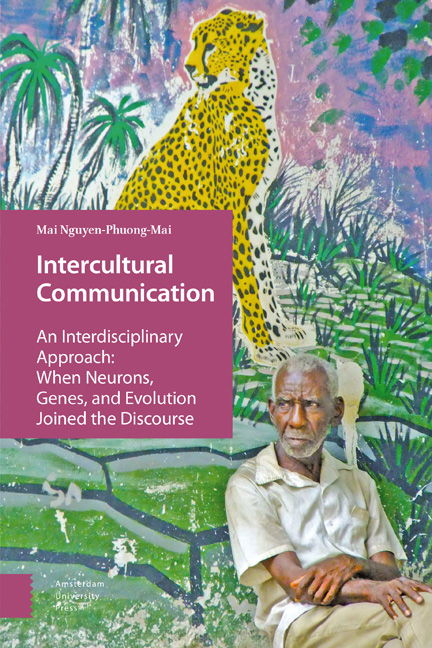 Intercultural Communication
Intercultural Communication Book contents
- Frontmatter
- Dedication
- Contents
- Preface
- 1 The Survival of the Most Cultured
- 2 The Evolving Culture
- 3 Stereotype – A Necessary Evil
- 4 Non-Verbal Communication – How You Make Them Feel
- 5 A Taxonomy of Diversity
- 6 Intercultural Competence – Creating Yourself
- 7 Diversity Management and Inclusion
- To the Readers
- 7 Takeaways from this Book
- Up and Coming Book from the same Author
- Notes
- Index of Names
- Index of Subjects
- Index of Geography, Culture and Religion
1 - The Survival of the Most Cultured
- Frontmatter
- Dedication
- Contents
- Preface
- 1 The Survival of the Most Cultured
- 2 The Evolving Culture
- 3 Stereotype – A Necessary Evil
- 4 Non-Verbal Communication – How You Make Them Feel
- 5 A Taxonomy of Diversity
- 6 Intercultural Competence – Creating Yourself
- 7 Diversity Management and Inclusion
- To the Readers
- 7 Takeaways from this Book
- Up and Coming Book from the same Author
- Notes
- Index of Names
- Index of Subjects
- Index of Geography, Culture and Religion
Summary
We are often amazed at the incredible tapestry of our cultures on this planet. They are not only rich, but also incredibly transferable, to the extent that humans from one corner of the world can benefit from inventions and traditions that originated from another, distant land.
While the flow of cultural exchange is incredible and beneficial, similarities and differences have dynamically pulled and pushed the interaction, acting as anything from opportunities to obstacles, relentlessly shaping and reshaping our lives throughout the history. This raises questions, such as why are these cultural boundaries in language, values, religions, and practices so persistent, yet also malleable? Why do they even exist in the first place? Why are we so different from each other, yet, so similar? And why are we so eager to learn from each other, yet so aggressive towards each other that we sometimes want to destroy those who don't think in the same way as us?
If we look at human beings from a biological point of view, we are genetically similar. Human beings are such a young species that, in fact, race does not exist. We may have different skin color or body structure, but genetically, we are not different enough to justify more than one distinct race among us. In terms of DNA sequence, we are up to 99.5% similar to any of our fellow humans.
Race is a social construct with no genetic or scientific meaning, and it is also a new concept of the modern era. Ancient and classical civilizations tended to see differences in tribal affiliation, rather than skin color and physical appearance. Indeed, many African officers and soldiers patrolled Hadrian's Wall 2000 years ago. Roman emperor Septimius Severus was born in Libya, and thus, he was the first black man to rule England. “Race” only entered our vocabulary during the 16th century, as an attempt to classify human groups at a time when knowledge about genes did not exist.
UNESCO, supported by scholars such as Lévi-Strauss – a founder of ethnology – insisted that the term “race” should be replaced by “culture,” and “racism” by “ethnocentrism.” The diversity we see in human beings comes from geographical, historical, political, economic and social factors. There is no inherent superior or inferior implication for advancement in our biological make-up, because all human beings belong to a single species.
- Type
- Chapter
- Information
- Intercultural CommunicationAn Interdisciplinary Approach: When Neurons, Genes, and Evolution Joined the Discourse, pp. 13 - 48Publisher: Amsterdam University PressPrint publication year: 2017


